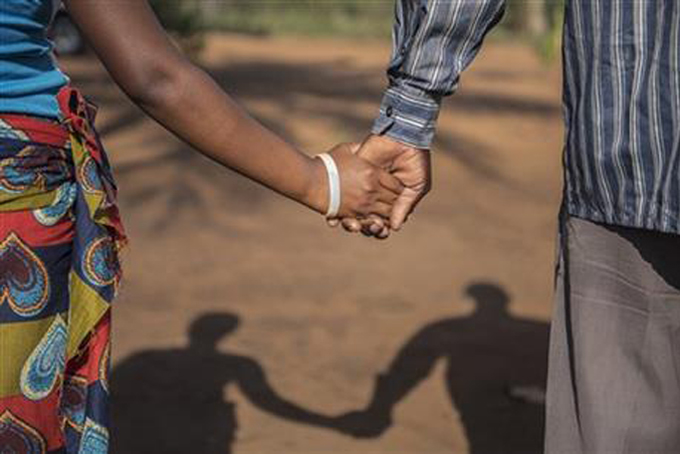
JOHANNESBURG (AP) _ The 14-year-old girl had just arrived home from school when her family told her to swap her school uniform for traditional wedding robes. While she had been sitting in her seventh grade classroom in South Africa, her male relatives had received a $570 bride price for her from a man she’d never met who was twice her age.
As is the case with many child brides, beatings and rape were common in her new marital home. After a number of failed escape attempts, she finally made it over a fence and ran to the nearest police station. She then filed charges for the case that would become the first criminal prosecution of child marriage in South Africa.
An estimated 125 million African girls are child brides, with that number expected to rise to 310 million by 2050, creating a legacy of “lost childhoods and shattered futures,” according to a report released by UNICEF on Thursday that demanded more aggressive government actions to end the practice on the continent.
Across Africa girls are being married off to pay off family debts, to keep them free of sin or simply because it’s tradition, but the lives of these child brides are ones of violence, poverty and increased risk of HIV, said UNICEF.
In last year’s case in South Africa, the girl’s husband was convicted of rape, assault and human trafficking and sentenced to 22 years in prison, but he maintained that he was just following traditional practices. The Associated Press has not named the girls in this report because they are minors.
Even in South Africa, with its liberal constitution and a litany of laws to protect child brides, the traditional practice of “ukuthwala” often supersedes modern laws, according to the Commission for Gender Equality, a constitutional agency.
Where once a young man would take a consenting girl home to his village to convince her family to agree to marriage, now some aging men are twisting the practice and abducting young girls, raping them, and then forcing them into a union that often resembles slavery, according to the commission.
Similarly in Ethiopia, abductions and forced marriages of girls were widely practiced in the countryside until outlawed, at least officially, in 2004.
In Mozambique, there are no laws preventing child marriages and existing child protection laws offer loopholes, said Carla Mendonca, a child protection specialist for UNICEF Mozambique. If a community decides that a girl is to be married in a traditional ceremony, with or without her consent, lawmakers are powerless to intervene, explains Mendonca.
In Mozambique, child marriage is a way out of poverty for the family _ one less mouth to feed and a windfall from the dowry. Nearly half of women aged 20 to 24 were married before the age of 18, according to UNICEF.
“My parents are poor, they cannot afford to look after me,” said a 16-year-old, who has a 1-year-old child. “I helped my family when I got married, they no longer need to support me.”
In another village in Mozambique’s Inhambane province, another 16-year-old girl gave up on school after her husband told her it was too dangerous to study in the evening.
“I was in the ninth grade,” said the girl, who lives with her in-laws while her husband works as a miner in neighboring South Africa. “Now I get up at 6 a.m., I clean the house, then I clean my mother-in-law’s house and I also work on the farm.”
Daughters are often used to pay off a family debt, said Pascoa Claudino Sumbana Ferrao, Government Director in Inhambane City. “Mostly it’s a situation where the mother herself was given away as a little girl, so they think it’s normal. It becomes something generational.”
In Zimbabwe, an early marriage is seen as path to avoid sin. Child marriage is often encouraged among the 1.2 million followers of churches that combine evangelical Christianity and traditional African beliefs, according to Human Rights Watch. Church leaders also enforce virginity testing rituals on girls as young as 12.
“The problem is that girls and women are not allowed to speak,” a church elder told Human Rights Watch. “If a man stands up in church and says God showed him in a dream that he should marry a certain girl, then that is God’s commandment which must be obeyed.”
A coalition of churches in the country is now trying to stop the practice but like many campaigners across the continent, they face a great deal of resistance to change.
“We are trying to change, and stop child marriage in our churches, but we face a lot of resistance from some churches who hold on to many beliefs that justify exploitation of girls,” said Archbishop Johannes Ndanga, who admits to once supervising virginity tests himself.
___
Shiraaz Mohamed contributed to this report from Inhambane, Mozambique.